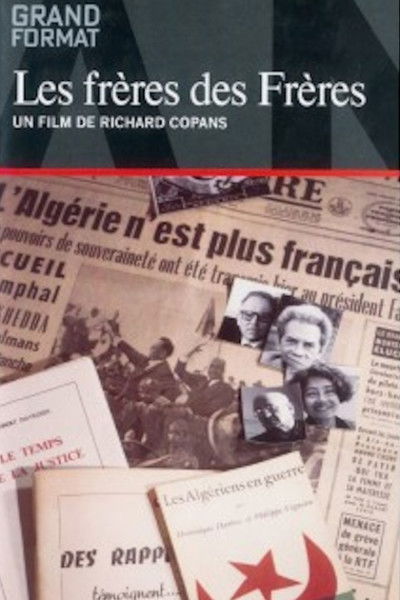Les Frères des frères
Genres
Documentary
OverView
During the Algerian war (1954-1962), some French people helped the F.L.N. in France.
Others
Budget
$--
Revenue
$--
Status
Released
Original Language
French
Runtime
103 mins
Rating
0/10
Release Date
01 January 1992
Country
France
